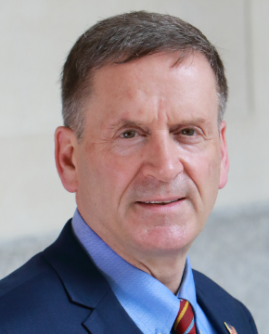“After helping people in their moments of crisis and humanitarian need,” according to the Wilson Center president, “conservative giving should focus on capacity building and supporting people, communities, and countries in their journey to self-reliance.”
Overall, giving by conservatives in America to support organizations and projects concerned with foreign policy and national security, as well as to groups and efforts at work “on the ground” in other countries that promote democracy or provide humanitarian aid, seems to have changed in many ways during the past decade, if not longer—concerningly to some, warrantedly to others. Hence this small online symposium.
To begin fostering some discussion and consideration of the important subject, we have simply presented three broad questions to a panel of five respondents:
- Do you think conservative international giving has changed during the past decade and, if so, how and why?
- Have these changes been good or bad, for America and the world, and how and why?
- How do you think conservative international giving should change, if at all, during the next decade?
The respondents, each with deep knowledge and wide experience in the area, are Wilson Center president Mark Green, former Joyce Foundation and German Marshall Fund president Craig Kennedy, Quincy Institute for Responsible Statecraft chief executive officer Lora Lumpe, former Bradley Foundation vice president for program and Giving Review co-editor Daniel P. Schmidt, and Hudson Institute former president and distinguished fellow Kenneth R. Weinstein.
Green’s responses are below. Here are links to the others’ responses: Kennedy, Lumpe, Schmidt, and Weinstein.
Green has also been executive director of the McCain Institute, administrator of the U.S. Agency for International Development, president of the International Republican Institute, U.S. Ambassador to Tanzania, and a U.S. Congressman from Wisconsin.

Green (Wilson Center)
- Do you think conservative international giving has changed during the past decade and, if so, how and why?
Several broad trends have combined to reshape international giving—including conservative giving—over the past decade.
First, the nature of financial flows between the U.S. and the developing world has substantially changed. There was a time when official development assistance (ODA) was easily the largest source of dollars going to Africa, Latin America, and much of Asia. Food aid, global health dollars, education assistance, etc. These days, ODA is but a small portion of those financial flows … remittances, large scale philanthropy (the Gates Foundation and from faith-based organizations) have all grown dramatically. But the largest source, by far, is private commerce and investment. U.S. business realizes it has business in the developing world … and private giving takes that into account by providing support for education, skills training, etc., that can reinforce the viability of business investment.
Second, expanded ODA programs in the developing world have created a set of tools that private philanthropy can support, reinforce, or participate in. For example, PEPFAR (George W. Bush’s history making HIV/AIDS program) and Feed the Future (Barack Obama’s sweeping food security program) are life-lifting initiatives …. NGOs, universities and others bring a privately funded presence in the developing world that can help implement those ODA programs.
Third, humanitarian needs in many parts of the world are at historic highs—especially the needs caused by the record level of forced human displacement (refugees, internally displaced people, and other migrants)—and philanthropic giving has risen or shifted in response. From World Vision to Catholic Relief Services, from Lutheran World Relief to Samaritan’s Purse and many others, private giving has tried to help.
Fourth, the COVID-19 pandemic has taken up, understandably, resources that would have gone to other causes. Money that would have gone overseas is staying home to help with needs back here. Money that would have gone to other forms of development are going into the pandemic response.
Fifth, and most disturbing, the rise of authoritarian influences has led in many places to strong restrictions on the operation of NGOs and civil society groups supporting human liberty and democracy. Governments like the People’s Republican of China and Russia have either outlawed the operation of such groups or placed sweeping restrictions on their activities.
- Have these changes been good or bad, for America and the world, and how and why?
Some changes are neither good nor bad, but merely a result of larger trends, others have led to a range of unfortunate consequences.
Perhaps most importantly, the purpose of all of our giving, public and private, over the long term, should be to help people help themselves—a hand up, wherever possible, over a handout. While, morally, we should always be ready to help the unfortunate in their time of emergency or great need, real compassion means helping to build the capacity of individuals, communities, and countries to lead their own future according to their own dreams and aspirations. The historic levels of humanitarian need these days means that humanitarian assistance and relief threatens to cannibalize the development assistance that is aimed at being that “hand up.”
Second, this heightened demand for humanitarian assistance, when combined with authoritarian crackdowns, also threatens to lessen the focus on human dignity and democracy that should be at the heart of our development assistance and foreign policy—especially for conservatives. Supporting citizen-centered, citizen-responsive governance, pursuing what Ronald Reagan in his historic speech at Westminster called the “infrastructure of democracy,” is at risk. Any reduced emphasis on democracy assistance only serves to give comfort to autocrats and tyrants.
- How do you think conservative international giving should change, if at all, during the next decade?
After helping people in their moments of crisis and humanitarian need, conservative giving should focus on capacity building and supporting people, communities, and countries in their journey to self-reliance. Pushing back on entitlement and dependency, fostering self-reliance and human liberty, should be central themes in our international giving. Much as conservative-led welfare reform struck at the heart of the old-style, failed welfare state, conservatives should support international programs that break apart international bureaucracies that advance government over people and dependency over freedom.
Conservative international giving should embrace the role of faith-based organizations in meeting human needs. Such organizations can minister to the whole person, not merely that which is covered by the four corners of a government grant. Such organizations can reach into corners and communities which government often leaves behind. People trust these organizations because they were in communities of need before government programs every came along, and they’ll be there longer after government programs leave or lose steam.




